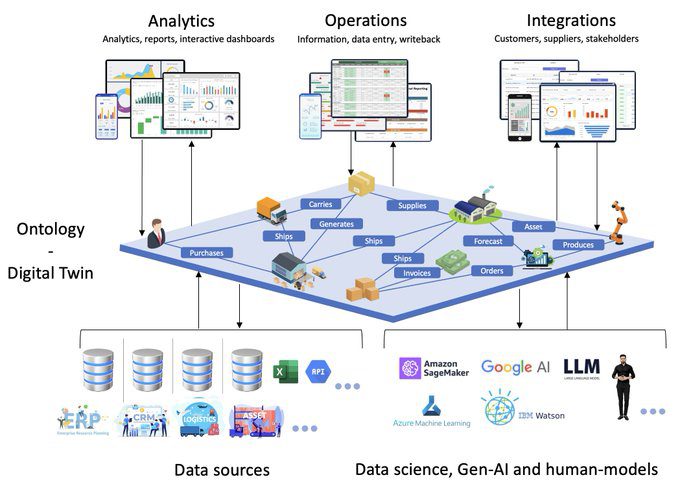The concept of AI as ‘infinite labor’ is gaining traction, especially with the advancements in AI tools like AIP. According to Chad Wahl, AI represents the infinite scaling of labor and expertise. By encoding skills into AI systems and leveraging new AI tools, we can achieve a scaling mechanism that encompasses both unskilled and skilled labor. This perspective is not just about automation; it is about scaling expertise and skilled labor.
AI in Various Sectors
AI’s impact is evident across various sectors. For instance, in the tech industry, AI tools like ChatGPT have been integrated into numerous services, enhancing productivity and decision-making. The integration of AI in photo editing tools and Google search results showcases its widespread application.

Robotics and AI Integration
Rodney Brooks, a pioneer in robotics, emphasizes the importance of practical applications of AI in robotics. His company, Robust.ai, focuses on integrating robots into warehouse operations. Brooks argues that generative AI is often overestimated and that practical, purpose-built robots are more effective in specific environments like warehouses. This approach highlights the importance of solving solvable problems and making technology accessible and purpose-built.
Brooks also points out that while large language models (LLMs) could eventually help with domestic robots, their current application in warehouses may not be as effective. Instead, optimizing data processing and AI techniques is crucial for efficiency in such environments.

AI in Manufacturing and Supply Chains
The adoption of AI in manufacturing and supply chains is transforming these sectors. Companies like LeanDNA are leveraging AI for inventory optimization, workflow automation, and supply chain optimization. This shift towards AI-driven solutions is enhancing efficiency, reducing costs, and improving customer delivery.
Moreover, the global AI market in manufacturing is expected to grow significantly, from $3.2 billion in 2023 to $20.8 billion by 2028. This growth underscores the importance of AI in driving productivity and innovation in manufacturing.
AI and Job Market Dynamics
AI’s impact on the job market is a topic of significant debate. While some fear job displacement, others see AI as an enabler of new opportunities. A study by MIT’s Computer Science and Artificial Intelligence Laboratory (CSAIL) suggests that AI may not steal as many jobs as expected. The study emphasizes the economic feasibility of AI automation in jobs requiring visual analysis, indicating a slower pace of job displacement than previously anticipated.
However, the demand for AI talent is growing, leading to a shift in the talent landscape. Companies are offering lucrative salaries and perks to attract AI specialists, highlighting the need for upskilling and reskilling the workforce to adapt to the evolving job market.
AI and the Future of Work
The future of work is being reshaped by AI, with predictions of shorter workweeks and increased productivity. As AI continues to evolve, it is expected to transform the workforce, enabling a balance between automation and human expertise. This transformation will require supportive policies, such as universal basic income, to manage the transition and ensure economic stability.
Related Articles
- Why AI is Not a Threat to Knowledge Workers
- Courting Change: The Shifting Landscape of AI in Legal Documentation
- Elon Musk’s xAI: A New Frontier in Artificial Intelligence
- The Evolution of AI: Moving Beyond Naive Scaling
- AI in Intellectual Property: Infringement Risks and Remedies
Looking for Travel Inspiration?
Explore Textify’s AI membership
Need a Chart? Explore the world’s largest Charts database
